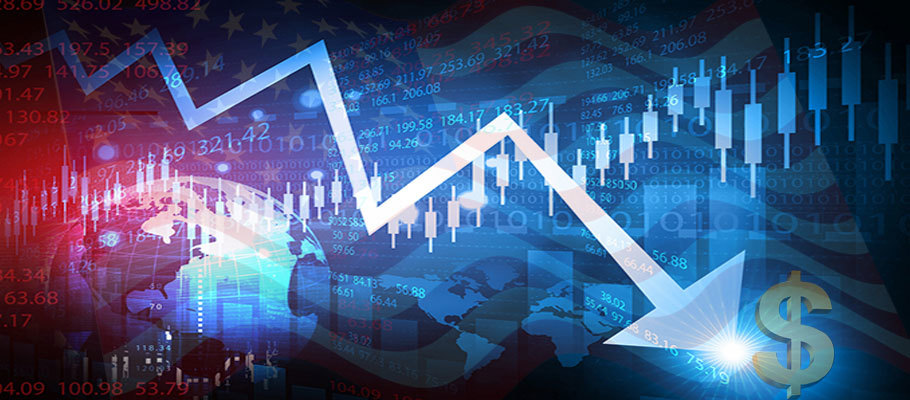
Published: May 10th, 2021
During the week that ended on Saturday, May 8, tech stocks experienced the worst drop since mid-March. The value of Apple shares shrunk by almost 4% as the sector suffered an overwhelming decline. The drop was prompted by investors dumping their stake in what analysts have considered as the best-performing stocks since the onset of the coronavirus pandemic.
On Thursday, May 6, technology stocks experienced their worst daily showing since mid-March. Investors opted to dump equity in some of the companies with the best-performing stocks since the ravaging effects of the coronavirus pandemic landed on the financial markets in 2020.
The tech-leaning Nasdaq Composite index on Wall Street was down 1.9%, its worst intraday loss since March 18. S&P 500 index, the broader-focused of the two, shed 0.7%, lugged under mostly by tech and consumer discretionary shares.
Apple shares were down 3.5% on the way to their worst drop since October 2020. Alphabet, Facebook, and Intel, all lost value.
According to Goldman Sachs, other segments of the $48 trillion U.S. equity market that benefited from the work-at-home duration were under pressure. Shares of companies that recently went public underperformed alongside equities in companies susceptible to Bitcoin price swings also gave a dismal performance.
Investors and traders said they are getting unnerved by the imminent signs of higher inflation. In particular, the comments by U.S. Treasury Secretary Janet Yellen on Tuesday, May 4, referring to the need to increase the interest rates to prevent the U.S. economic expansion from overflowing, might have triggered the concerns.
While addressing an event hosted by The Atlantic, Yellen said that interest rates could rise to prevent the economic recovery from overheating. Jen Psaki, White House Press Secretary, echoed Yellen’s sentiments. She reiterated that the Biden administration is taking inflationary risk seriously.
According to Jim Tierney, the chief investment officer and head of concentrated U.S. growth at AllianceBernstein, the interest rates might not be rising today; however, there are pockets of inflation rearing their heads. Tierney supported his sentiments by pointing at the steady leap in commodity prices and commentary from top company executives on earnings calls showing that most companies intend to or have already planned to jack up their prices.
Tierney said that everything happening now sounds like the equity market yelling that it is worried about inflation.
The script was the same in Europe, with the continent’s index STOXX 600 index closing 1.5% lower, with tech equities contributing much of the slip. Shares in SAP, a German software entity, dropped by more than 3%, while the value of shares of ASML, a Dutch semiconductor equipment manufacturer, shrunk by almost 5% of its stock market value.
The significant slips come after large tech companies astonished Wall Street, showing increasing Q1 sales and profits that emphasized how much they gained from consumers who remained largely at home because of lockdowns. Didier Rabattu, the head of equities at Lombard Odier, a Swiss private bank, said investors are now dumping lockdown stocks momentarily in anticipation of strong economic growth.
Brian Bost, Barclays’s leading executive in charge of equity derivatives in the Americas, said that stocks have lost traction despite the flurry of strong results, a situation that says a lot about the current market condition. He added that whether the coming inflation would be transitory or not, investors have to factor in higher risk premiums.
According to data released during the week that ended on Saturday, May 1, the U.S. gross domestic product grew by 6.4% during Q1 of 2021. However, the non-farm payroll data that was expected to indicate the addition of almost a million jobs to the U.S. economy in April turned into a huge disappointment.
The economy created only 266,000 jobs taking the unemployment rate up to 6.1% against the predicted drop to 5.8%. The dismal figures come even as various segments of the economy are reporting an increasing shortage of available workforce.
The Dow Jones had predicted that the economy would add about a million jobs. Besides, with the March estimates of 916,000 created jobs now revised to 770,000, some analysts now think the economy is not growing as robustly as the majority believe.
Investors are switching tact to limit the vulnerability of their portfolios to the forces of the U.S. market. According to Juliet Cohen, a strategist attached at CPR Asset Management, most investors have lessened their exposure to the U.S. market, particularly tech, where companies have shown strong results but have the trouble of too high valuation now.
Elsewhere, commodity prices kept up their ascent during the week.
The week ending on Saturday, May 8, brought good tidings for the commodities market, with copper getting to its highest point in a decade. Similarly, a commodity price index put together by Bloomberg attained its highest point since 2011.
Oil also continued on its upward trajectory. Brent crude futures gained 2% to hit $68.88 per barrel. The dollar index edged by 0.4% against the basket of currencies. However, the yield on the 10-year U.S. Treasury note slid marginally by 0.01% to stand at 1.59%.
The year has been particularly good for Treasury yields, which have climbed to their current point from about 0.9% at the beginning of 2021. However, the steady surge slightly staggered in March following the Federal Reserve’s pledge that it will not reinforce its monetary policy even as bursts of inflation crop up.
The bank predicts that the economy will grow at a rate of 6.5% on the backdrop of the Biden administration’s stimulus and vaccine rollout. Despite the prospect, the Fed said it does not foresee a rate rise, at least not until 2024.
Federal Reserve officials indicated that they are maintaining a dovish stance even on account of the improving outlook. However, the bank warned that full economic recovery remains distant and the path ahead muddied by uncertainty. Because of all the factors, the economy needs an ultra-easy monetary policy, the officials added.